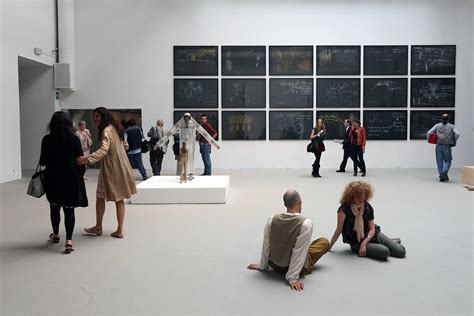A Quote by Ludwig von Mises
Economics is not about things and tangible material objects; it is about men, their meanings and actions.
Related Quotes
My mother and my father taught me to look at the actual problem, not the face of it, not the veneer of it. So for me, I was never - I was impressed that it - racially, I was impressed, right, but now in America it's about economics, and it's been about economics, and honestly, everything's been about economics since I don't want to say the beginning of time, but it's been about economics for a long while.
Our culture is hung up on and overemphasises what can be derived from material objects. I think this is something quite new, over the past 200 or 300 years - that life has become about accumulating material wealth. The 21st century is not about accumulating material wealth like the 20th century. It's already eroding.
Fashion museums think the more you know about the significance of clothes culturally, the more interesting they are. We certainly don't neglect the aesthetic aspects of clothes. But, I feel that what sets us apart from social, economic, and even aesthetic, or art historical context is that we are not only talking about clothes as kind of art objects created by an artist designer, but also we're talking about the various meanings that clothes have in the world, and how that changes and how we kind of create meanings around clothes.
I agree that science is the best way of understanding the natural world, and therefore that we have reason to believe what the best science tells us about the objects in that world and the relations between them. But this does not mean that the natural world is the only thing we can have true beliefs about. The status of material objects as things that are "real" is a matter of their having physical properties, such as weight, solidity, and spatio-temporal location. In order to be real, such things need not have, in addition to these properties, some further kind of metaphysical existence.
Think about how tangible it would be to the citizens of Washington State to finally have the Hanford nuclear site cleaned up. Think about how tangible it would be to the citizens along the Hudson River to fix that pollution. These are some of the most direct things we can do to benefit our environment.
Man never ceases to seek knowledge about the objects of his experiences, to understand their meaning for his existence and to react to them according to his understanding. Finally, out of the sum total of the meanings that he has deduced from his contacts with numerous single objects of his environment there grows a unified view of the world into which he finds himself "thrown" (to use an existentialist term again) and this view is of the third order.



































